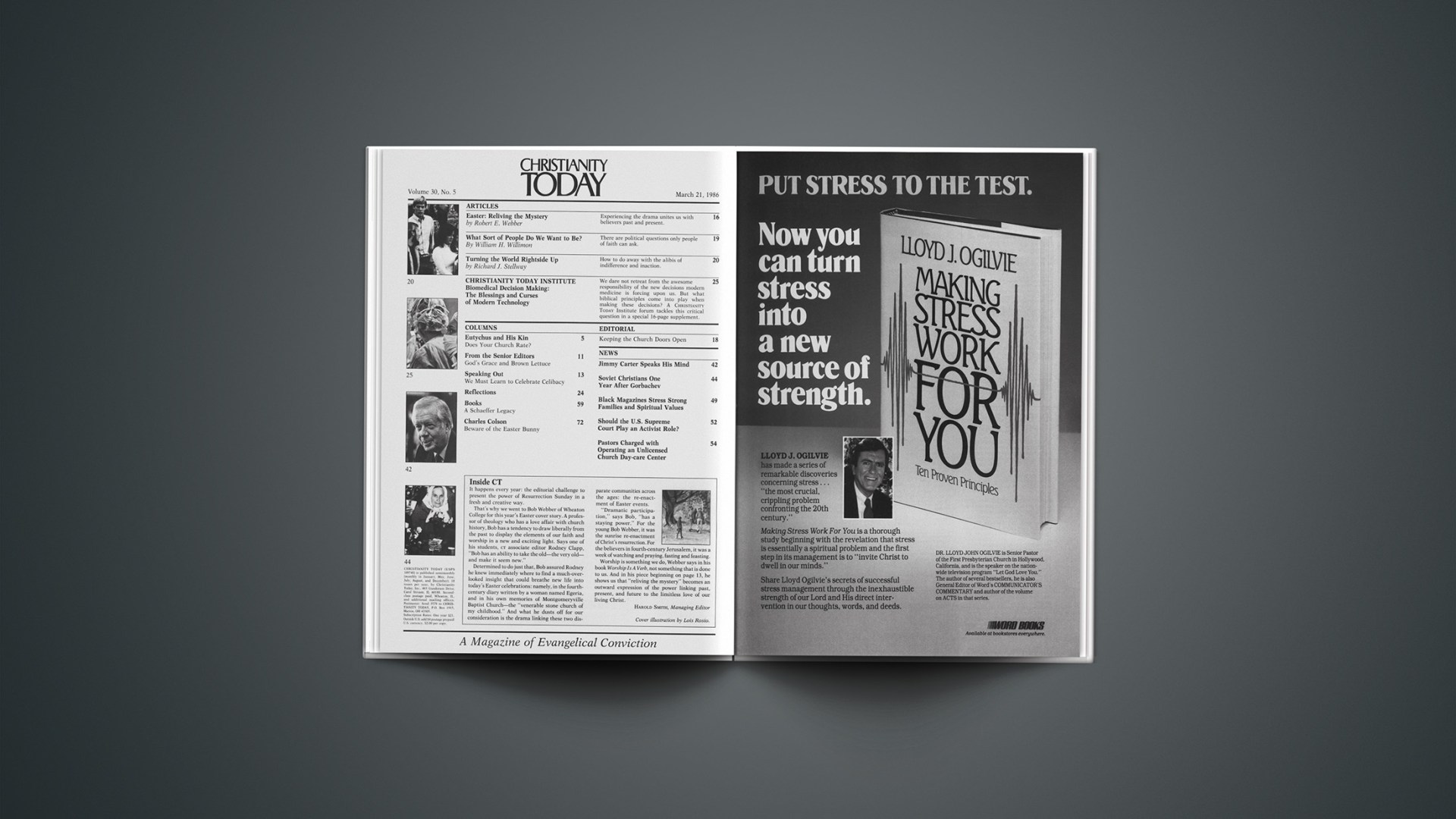It happens every year: the editorial challenge to present the power of Resurrection Sunday in a fresh and creative way.
That’s why we went to Bob Webber of Wheaton College for this year’s Easter cover story. A professor of theology who has a love affair with church history, Bob has a tendency to draw liberally from the past to display the elements of our faith and worship in a new and exciting light. Says one of his students, CT associate editor Rodney Clapp, “Bob has an ability to take the old—the very old—and make it seem new.”
Determined to do just that, Bob assured Rodney he knew immediately where to find a much-over-looked insight that could breathe new life into today’s Easter celebrations: namely, in the fourth-century diary written by a woman named Egeria, and in his own memories of Montgomeryville Baptist Church—the “venerable stone church of my childhood.” And what he dusts off for our consideration is the drama linking these two disparate communities across the ages: the re-enactment of Easter events.
“Dramatic participation,” says Bob, “has a staying power.” For the young Bob Webber, it was the sunrise re-enactment of Christ’s resurrection. For the believers in fourth-century Jerusalem, it was a week of watching and praying, fasting and feasting.
Worship is something we do, Webber says in his book Worship Is A Verb, not something that is done to us. And in his piece beginning on page 13, he shows us that “reliving the mystery” becomes an outward expression of the power linking past, present, and future to the limitless love of our living Christ.
HAROLD SMITH, Managing Editor










